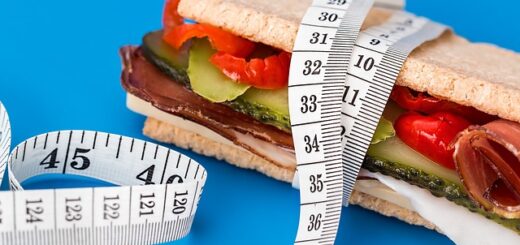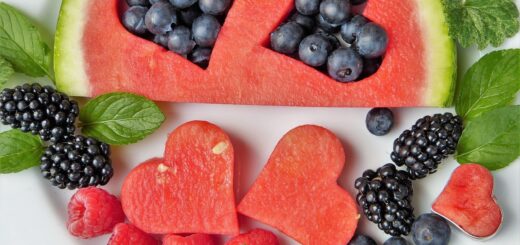What is diet and how is it done?

The concepts of healthy eating and dieting can be complicated or scary for many people. But they are actually powerful tools you can use to support your body’s health and well-being. Healthy nutrition and diet play a big role in not only controlling weight but also improving your overall health and preventing chronic diseases.
Healthy nutrition and diet are an essential part of keeping your body functioning at its best. Choosing the right foods, controlling portions, and exercising regularly can improve your health and improve your quality of life. Remember that everyone’s needs are different, so it’s always a good idea to seek professional help from a dietitian or nutritionist to create a personalized eating plan.
What is a diet?
Diet is a term that regulates and controls a person’s daily food and drink habits and eating habits. The purpose of diets is to maintain a person’s health, maintain weight control, lose weight, meet special nutritional needs, or achieve another goal. Which type of diet is best may vary from person to person, and guidance from an expert may sometimes be necessary. When choosing any diet plan, it is important to pay attention to expert advice and your health needs. Because everyone’s individual needs are different and eating healthy should always be a priority.
What is a diet list ?
A diet list refers to a plan that includes meals and drinks that a person will follow for a certain period of time. This plan generally aims to meet the individual’s health goals and nutritional needs. Diet lists can be created for different purposes, such as weight loss, weight control, health improvement or meeting special nutritional needs.
How to diet?
Dieting involves carefully approaching food and drink to maintain healthy weight control, improve health, or meet special nutritional needs. Basic steps to consider when going on a diet:
- Goal Setting
- Healthy Food Groups
- Portion Control
- Calorie Content
- Regular Meals and Snacks
- Hydration
- Healthy Fats
- Low Processed Foods
- Personalization
- Sustainability
What are the types of diets?
Diet types vary with different nutritional approaches and goals. Each type of diet focuses on achieving a specific goal or adopting a specific nutritional method. Some common diet types:
- DASH Diet: DASH (Dietary Approaches to Stop Hypertension) is designed to control hypertension and improve heart health. It emphasizes low salt intake and includes plenty of fruits, vegetables, whole grains, low-fat dairy products, fish, chicken and legumes.
- Gluten-Free Diet: The gluten-free diet involves consuming gluten-free foods and is especially necessary for those with celiac disease or gluten sensitivity. This diet requires avoiding gluten-containing grains such as wheat, barley, and rye.
- Atkins Diet: The Atkins diet aims to promote weight loss by limiting carbohydrate intake. The diet consists of four phases and initially involves very low carbohydrate intake.
- Yo-Yo Diet: Yo-yo diet refers to the cycle of weight gain and loss. The person gains and loses weight frequently, which can be harmful to health.
- Macrobiotic Diet: The macrobiotic diet emphasizes energy balance and includes whole grains, vegetables, fruits, seafood, and local foods. This diet aims to balance energy flow.
- Ketogenic Diet: This low-carb, high-fat diet aims to put the body into ketosis. Ketosis is a state in which the body begins to use fats as energy. The ketogenic diet is used for weight loss and the treatment of some neurological disorders.
- Paleolithic Diet (Paleo): This diet aims to mimic the foods of the hunter-gatherer period. It is based on the belief that people should not consume grains, sugars and processed foods. The Paleo diet encourages natural, whole foods.
- Mediterranean Diet: It is a type of diet that reflects the eating habits specific to Mediterranean countries. Olive oil, fish, vegetables, fruits and legumes form the basis of this diet. It supports heart health and promotes longevity.
diet tips
You can consider some diet tips to maintain a healthy lifestyle and control weight. Create a balanced nutrition plan that includes protein, carbohydrates and fat at each meal. This ensures your body gets essential nutrients. Keeping portions under control prevents excess calorie intake and makes weight control easier.
Consuming plenty of fruits and vegetables increases your intake of vitamins, minerals and fiber. Colorful vegetables are preferred because different colors represent different nutrients. Choose whole grain products instead of white bread and white rice. This provides more fiber and nutrients. Good quality proteins provide muscle development and a feeling of fullness. Sources such as chicken, fish, tofu and legumes can be preferred.
Choose water, herbal teas or low-calorie drinks instead of sugary drinks. Limit alcohol consumption. Avoid saturated and trans fats. Get healthy fats, especially monounsaturated fats like olive oil, avocados and nuts. The diet list is very specific and do not rely on general diets. Everyone is different from each other. You should have blood measurements taken and create a diet list with your dietitian in the light of scientific data.
Is dieting healthy?
Although dieting is often thought of as part of adopting a healthy lifestyle, it is an issue that needs to be approached carefully. A healthy diet aims to get the nutrients the body needs and maintain weight control. However, the term “diet” can sometimes imply restrictive and unbalanced diet. A healthy diet should include a variety of nutrients and provide adequate amounts of vitamins, minerals, proteins, fats and carbohydrates. Diets based on extreme restrictions for weight loss often do not produce long-term success and can lead to health problems.
To achieve balanced and sustainable weight control, experts generally recommend choosing quality foods, paying attention to portion control, and encouraging regular physical activity. At the same time, it is important to remember that each individual has different nutritional needs depending on body type, age, gender, health status and lifestyle.
What should not be eaten for a diet?
As part of a balanced diet, it is often recommended to limit certain foods or avoid them altogether if possible. However, instead of eliminating these foods completely, consuming them in healthy amounts or replacing them with healthier alternatives may be a more sustainable approach. Here are some foods that should be generally limited or taken into consideration:
- It is important to limit sweet snacks and sugary drinks that contain processed sugar. Instead, you can choose fruits that contain natural sugar.
- Avoid trans fats found in fried foods, ready-made snacks and some processed foods. Instead, focus on healthy fat sources, such as olive oil, avocado and fish oil.
- It is important to limit processed foods that contain high amounts of salt. You can add flavor to meals by using natural spices and herbs instead of salt.
- It may be more nutritious to choose whole grain products instead of white flour breads and refined grains.
- Processed meat products, especially those containing nitrates and nitrites, should be limited for a healthy diet. You can focus on healthier protein sources like chicken, fish and legumes.











